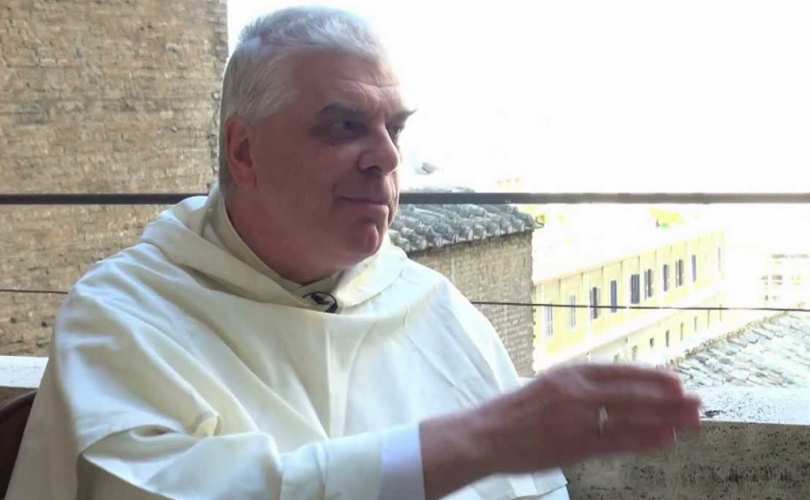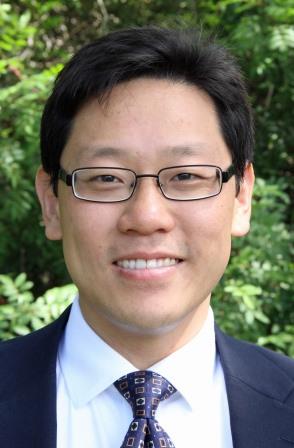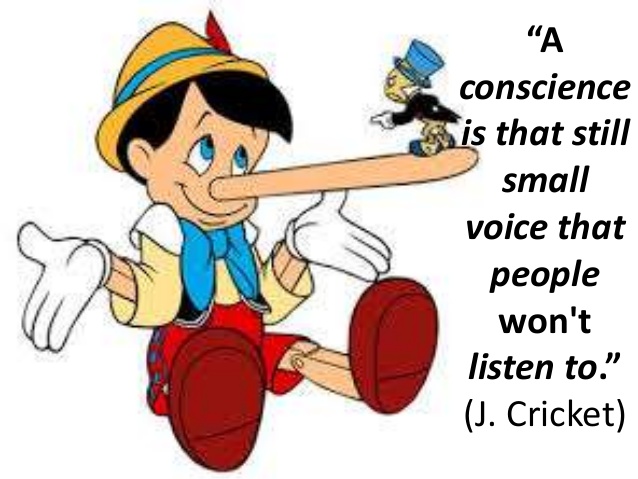ROME, November 4, 2015 (LifeSiteNews) – Conscience is a window to truth, according to the pope’s theologian. And an act of conscience is an act of reason, not something to be confused with feelings.
Father Wojciech Giertych, Theologian for the Papal Household, aka Master of the Sacred Palace, sat down with LifeSiteNews during the final week of the Vatican’s Synod on the Family to discuss some of the issues considered during the international gathering of bishops called to address challenges to the family.
Father Giertych did not take part in the synod, and he was therefore not privy to any of the closed discussion occurring there, nor was he able to speak to specific synod developments.
However, the one on-call theologian for the pope, Father Giertych is a valuable resource on the Church’s teaching. And he was able to offer clarity on some of the moral areas discussed so widely at the synod.
Given the underlying question of conscience during the synod gathering, LifeSiteNews asked Father Giertych about the prevalent indifference to sin in society and its implications. He concurred that there is an absence of a sense of sin today in many parts of the world, with the effects carrying over into real consequences for people’s lives.
“If the perception of moral truth is unclear, then people are lost,” Father Giertych said. “People aren’t quite sure what is right and what is wrong.”
Following this, conscience is now often cited to allow permission for people to act on their impulses and desires, without regard for sin or consequence.
Specific to the synod, a term that received attention was “inviolability of conscience,” which seeks to establish an individual’s personal conscience as paramount, without necessarily first defining conscience.
Father Giertych told LifeSiteNews that we have to be careful in what we mean by the term “conscience.”
“Conscience is the act of practical reason,” he stated.
“Many people identify conscience with feelings,” said Father Giertych. “Feelings are secondary; conscience is a window to truth. … The conscience has to be formed to see the truth.”
We should not identify our conscience with our feelings, he continued. Rather, we have to go to the truth of the matter. And application of conscience is not an arbitrary thing.
“The idea of a subjective conscience, that I invent my moral principles as I go along – this is absurd. This is absolutely wrong.”
“You have to perceive the truth of the matter,” stated Father Giertych, “by reason.” This means taking all factors involved into account.
There are three specific criteria that determine an individual’s perception of the truth related to an act of conscience, Father Giertych told LifeSiteNews. These are the intention, the object of the act, and the circumstances. “If one is missing, then the whole act is inappropriate.”
The truth of an act of conscience can vary according those criteria.
One example he explained was the question of whether a doctor should amputate a patient’s limb. This is an extremely serious thing, and it would not be appropriate to take the limb in a medical setting where it could be saved. However, it is another matter entirely if leaving the limb will kill the patient.
Father Giertych clarified that while the conditions that establish the criteria surrounding an act of conscience can vary, the definition of conscience and its application do not.
“The idea of a subjective conscience, that I invent my moral principles as I go along – this is absurd. This is absolutely wrong,” he told LifeSiteNews.
The concept of conscience permeated much of the synod discussions, as it directly relates to the moral issues debated there.
Among the most hotly disputed matters was that of Holy Communion for divorced and civilly remarried Catholics.
Father Giertych revisited for LifeSiteNews the fundamental question of who should present him- or herself for the Eucharist.
“Every individual before he receives Holy Communion has to see that he receives the Communion worthily, believing this is the body and blood the soul and the divinity of Jesus Christ given under the species of bread and wine,” he said, “and that the individual is in a state of grace. That means that individual is not aware of having committed mortal sin.”
When someone is in a state of grave sin, Father Giertych said, he must be absolved of his sin before presenting himself for Communion.
“If that is the case, then it’s required to go to Confession and be absolved of the sin,” he stated.
A perfect conversion is necessary for worthiness to receive Communion, the papal theologian continued, and that means a conversion toward God and an aversion to sin.
The same can be said of any temptation, Father Giertych explained, as it is in the case of Catholics living objectively in a situation that is contrary to the moral truth.
No one is owed Communion; rather, it is a gift from the Lord to be given proper regard and handling.
“The graces of God we receive as a gift from God,” said Father Giertych, “and so we have to persist in an attitude of gratitude. … Whereas if we approach the gifts of God with our list of demands, it destroys the purity of our relationship with God. So any sort of sense of entitlement is incorrect. It’s inappropriate.”
“The teaching of St. Paul is clear,” the theologian explained: “we have to be worthy to receive the Eucharist, we cannot receive it unworthily, and affirmation of sin makes a person unworthy.”
When asked about the idea often expressed that Communion is not a prize for the perfect, but medicine for the sick, Father Giertych clarified that this does not negate the elements necessary to be worthy of receiving Communion.
“The sacraments are a nourishment,” he said, “but they’re nourishment that has to be received in truth, and in the pure relationship of gratitude towards God, and in the recognition of the light that God has given us.”
“The graces of God we receive as a gift from God, and so we have to persist in an attitude of gratitude.”
Father Giertych pointed out that the Commandments and moral teaching transmitted in the Church are also a gift, and that one must accept all of the gifts God gives to properly accept any.
“We receive Jesus not only on the sacraments, but also in the teaching that accompanies the sacraments,” he said.
And Father Giertych dismisses the idea of a supermarket approach, saying, “You enter the supermarket: ‘I want this, no, I don’t want that. … But in our relationship with God, we cannot impose upon God our own list of demands. ‘I want these graces, I don’t want those other graces…’ If we are pure in our relationship to God, we accept them all.”
To the argument that the Church must adapt Her teaching to align with society’s standards today, Father Giertych counters that today is not at all different from any other time in that no justification exists to allow the Church’s principles to be compromised.
It’s not a novelty that times change and the Church would face new challenges, he told LifeSiteNews.
The Church had to invent certain practical ways to help people to live the fullness of the Gospel in the past, he said, but the fullness of the Gospel has not changed.
“Human nature, the sacraments, divine grace, what we receive from Christ and the identity of the Church, the mission of the Church has not changed. [T]he principles have not changed; human nature has not changed. And the guidance that God gave us ultimately in the Word made flesh, in Christ, that does not change.”
Regarding the concept discussed during the synod of Church decentralization, Father Giertych was quick to correct a misconception that the Vatican controls everything. He said the term decentralization refers to government.
He also clarified that the Church has always defended the concept of subsidiarity – the idea that it’s always best to handle things on the local level whenever possible.
“The local bishop should address his individual diocese’s problems by applying the Gospel, Church teaching, and tradition.”
But the idea that any doctrinal matters could be managed at the diocesan level is wrong, he said, as it is not the local bishop’s place to do so.
Individual bishops must handle issues in their respective dioceses, but only within the confines of upholding Church teaching. A bishop cannot decide doctrinal issues because he hasn’t the authority, as the Church’s teaching comes from the Church and therefore cannot be changed.
“The local bishop should address his individual diocese’s problems,” said Father Giertych, “by applying the Gospel, Church teaching, and tradition.”
Love,
Matthew















